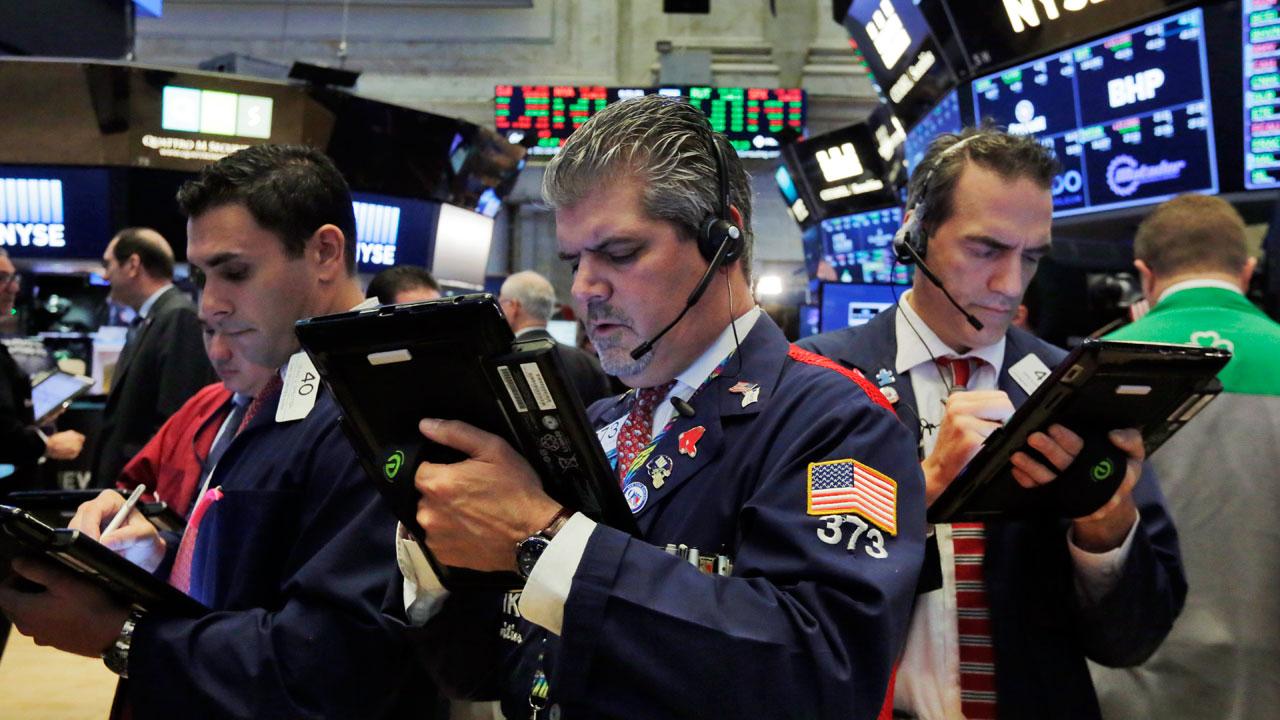White House believes big US-China trade deal could rocket Dow 2,000 points; Investors say devil is in the details
It may be wishful thinking, but President Trump and his economic team believe a significant trade deal with China could boost the stock market, as measured by the Dow Jones Industrial Average, possibly as much as 2,000 points in the near term depending on just how many concessions U.S. negotiators can wring out of their Chinese counterparts, FOX Business has learned.
A deal could come in the next three or four weeks, according to statements Trump made Thursday evening at an event celebrating St. Patrick’s Day with the Irish Prime Minister.
It's unclear where this wave of optimism in the White House is coming from. In recent days, U.S. negotiators, led by trade representative Robert Lighthizer and Chinese officials continue to debate a deal with little tangible progress other than the president’s own assessment of the talks. In fact, the U.S. trade deficit grew to a record $891 billion last year as reported by the Commerce Department.
Despite the rally that began when Trump won the White House, stocks have seen more volatility as the president began to issue tariffs on foreign goods, and countries retaliated with their own, foreshadowing slower economic growth. The two countries have been negotiating on and off for nearly two years with President Trump and Chinese President Xi Jinping meeting together twice as the U.S. has imposed tariffs on Chinese goods, and China has imposed tariffs of its own.
Trump has made correcting the trade imbalance between the U.S. and the world one of his signature policy issues. He has long railed against what he believes are unfair trade practices coming particularly from China, including its theft of intellectual property from U.S. companies doing business there.
Investors and traders believe the stock market has already priced in what many on Wall Street believe will be the most likely outcome of the ongoing China-U.S. negotiations: A modest deal that maintains the status quo of the past few years and fails to address key issues like intellectual property and removal of most tariffs.
A grand trade deal with China, however, could be a positive surprise to investors as U.S. companies gain greater access to the vast and growing Chinese economy and a debilitating trade war is averted.
“If a trade deal is reached without caveats and conditions, the market will take off like a rocket,” according to Chief Investment Officer at Tigress Financial Partners Ivan Feinseth. “The market has been trading up recently in anticipation of a deal, but it’s not already priced in a major deal because we don’t know what the deal will look like.”
White House economic policy makers and the president himself also believe a substantial deal will boost markets significantly, according to people with direct knowledge of the matter.
“We don’t believe a significant deal is already baked into stock prices,” one senior White House economic adviser, speaking on the condition of anonymity, told FOX Business. “That’s why we believe that a real trade deal with China will take the Dow (Jones Industrial Average) up around 2,000 points.” At current levels that would bring the Dow to the 27,700 level, exceeding the record high of 26,828 reached in October 2018.
A White House spokesman had no comment.
CLICK HERE TO GET THE FOX BUSINESS APP
Of course, given Trump’s frequent use of overblown rhetoric, his 2,000 point boast could be an exaggeration. However, some Wall Street strategists believe 2,000 points, or close to a 10 percent increase in the Dow isn’t unreasonable in the months following a significant trade deal.
In fact, some political insiders believe U.S. officials are purposely prolonging talks with China—waiting as long as possible before finalizing an agreement to get the most positive spin from a likely market rally just as the 2020 presidential election heats up.
However, as negotiations drag on, pressure mounts for the Trump administration to reach a significant agreement or the White House risks disappointing traders and investors and sparking a sell off. Regardless of when the deal is reached, it will need to be marketed well and sold as an economic game changer to make a difference with investors.




















